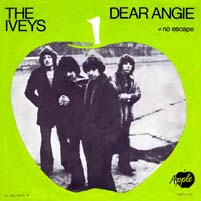
Badfinger were a Welsh-English rock band formed in 1961 in Swansea, Wales. Their best-known lineup consisted of Pete Ham (guitar), Mike Gibbins (drums), Tom Evans (bass), and Joey Molland (guitar). They are recognised for their influence on the 1970s power pop genre. It is estimated that the band sold 14 million records.
Apple Records is a British record label founded by the Beatles in 1968 as a division of Apple Corps Ltd. It was initially intended as a creative outlet for the Beatles, both as a group and individually, plus a selection of other artists including Mary Hopkin, James Taylor, Badfinger and Billy Preston. In practice, the roster had become dominated by the mid-1970s with releases of the former Beatles as solo artists. Allen Klein managed the label from 1969 to 1973, then it was managed by Neil Aspinall on behalf of the Beatles and their heirs. Aspinall retired in 2007 and was replaced by Jeff Jones.

No Dice is the third studio album by British rock band Badfinger, issued by Apple Records and released on 9 November 1970. Their second album under the Badfinger name, but their first official album under that name, and first to include guitarist Joey Molland, No Dice significantly expanded the British group's popularity, especially abroad. The album included both the hit single "No Matter What" and the song "Without You", which would become a big hit for Harry Nilsson, and later a hit for Mariah Carey.

Straight Up is the fourth studio album by the Welsh rock band Badfinger, released in December 1971 in the United States and February 1972 in Britain. Issued on the Beatles' Apple record label, it includes the hit singles "Day After Day" and "Baby Blue", and the similarly popular "Name of the Game", all of which were written by singer and guitarist Pete Ham. The album marked a departure from the more rock-oriented sound of Badfinger's previous releases, partly as a result of intervention by Apple Records regarding the band's musical direction.

Peter William Ham was a Welsh singer, songwriter and guitarist best known as a lead vocalist of and composer for the 1970s rock band Badfinger, whose hit songs include "No Matter What", "Day After Day" and "Baby Blue". He also co-wrote the ballad "Without You", a worldwide number-one hit for Harry Nilsson that has become a standard covered by hundreds of artists. Ham was granted two Ivor Novello Awards related to the song in 1973.

Best of Bee Gees is a 1969 compilation album by the English-Australian rock band Bee Gees. It was their first international greatest hits album. It featured their singles from 1966–1969 with the exception of the band's 1968 single "Jumbo".
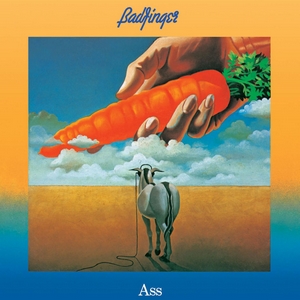
Ass is the fifth studio album by British rock band Badfinger, and their last album released on Apple Records. The opening track, "Apple of My Eye", refers to the band leaving the label to begin its new contract with Warner Bros. Records.
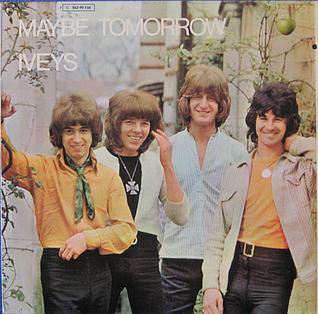
Maybe Tomorrow is the debut album by British rock band Badfinger. Maybe Tomorrow is the only release under the band's original name as The Iveys. It was issued in 1969 on the Apple label in Japan, West Germany and Italy. Although the album was scheduled to be released worldwide, the release in the US and UK at that time was halted without explanation. Many reasons for halting the album have been suggested by the band and Apple employees, but the most common theory is that Apple's newly hired president, Allen Klein, stopped all non-Beatle releases on Apple until he could examine the company's finances, which were in disarray at the time.
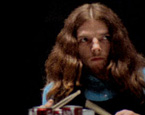
Michael George Gibbins was a Welsh musician, most notable for being the drummer of Badfinger.

Angela Ruth Hart, billed as Angie Hart, is an Australian singer best known for her role as lead vocalist in the alternative pop rock band Frente! and the indie pop duo Splendid with her then-husband Jesse Tobias. Hart's solo career commenced in 2006 with the release of the album, Grounded Bird (2007).
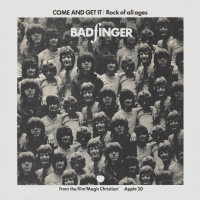
"Come and Get It" is a song composed by English singer-songwriter Paul McCartney for the 1969 film The Magic Christian. The song was performed by Badfinger, produced by McCartney and issued as a single 5 December 1969 in the UK, and 12 January 1970 in the US, on the Beatles' Apple label. It was the band's first release under the Badfinger name and was their international breakthrough, hitting the top 10 in both the UK and US singles charts.
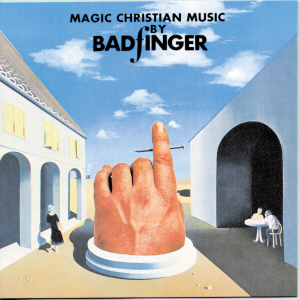
Magic Christian Music is the second studio album by the British rock band Badfinger, released on 9 January 1970 on Apple Records. It was their first release under the Badfinger name, having previously released the album Maybe Tomorrow in 1969 under the name The Iveys. It includes the band's first international hit, "Come and Get It", written and produced for them by Paul McCartney.

"No Matter What" is a song originally recorded by Badfinger for their album No Dice in 1970, written and sung by Pete Ham and produced by Mal Evans.

Thomas Evans was an English musician. He is best known for his work as the bassist of the band Badfinger.

"Maybe Tomorrow" is a song composed and sung by guitarist Tom Evans of The Iveys, which was released as the group's first worldwide single on Apple Records. It also served as the title track for the album Maybe Tomorrow, and it was also included on the Badfinger album Magic Christian Music released in 1970.
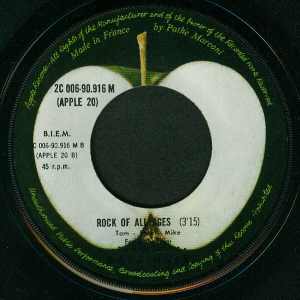
"Rock of All Ages" is a song written by Tom Evans, Pete Ham and Mike Gibbons that was first released on Badfinger's 1970 album Magic Christian Music. It was also released as the b-side to Badfinger's hit single "Come and Get It". The song was originally used as part of the soundtrack for the 1969 film The Magic Christian, starring Peter Sellers and Ringo Starr. The song was produced by Paul McCartney.
"Carry on Till Tomorrow" is a song written by Tom Evans and Pete Ham that was first released on Badfinger's 1970 album Magic Christian Music. It was also used in the film The Magic Christian, starring Ringo Starr and Peter Sellers. An edited version was later used as the b-side of Badfinger's single "No Matter What" in the United States.

"I Miss You" is a song by the British power pop band Badfinger. Written by Pete Ham for their first Warner Bros. LP, Badfinger, it served as the opening track and sole U.S. single for said album.

Brother is the debut album by the American pop-rock duo Lon & Derrek Van Eaton. It was released on the Beatles' Apple record label in September 1972 in the United States and February 1973 in Britain. It includes the single "Sweet Music", produced by George Harrison, and was otherwise produced by Klaus Voormann, a friend and longtime associate of the Beatles. On release, the album received favorable reviews from music critics but failed to achieve commercial success. Rolling Stone critic Stephen Holden hailed it as a "staggeringly impressive first album".

Ronald Llewellyn Griffiths is a Welsh musician, who was the bass guitarist for Badfinger from 1961 to 1969. He recorded bass on their first hit single "Come and Get It", but had left by the time the song entered the UK charts. When the band was still called The Iveys, Griffiths wrote, composed, and sang lead vocals on the song "Dear Angie",
